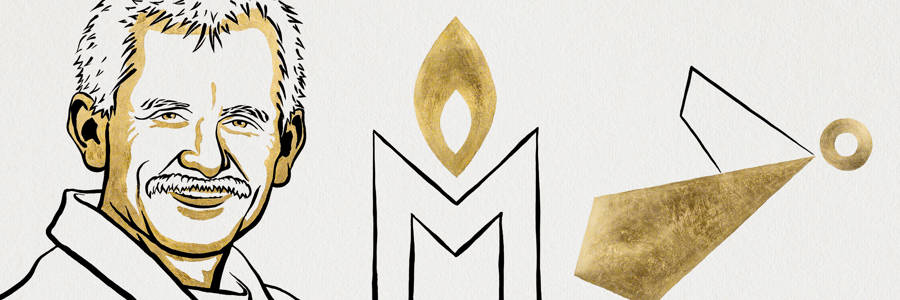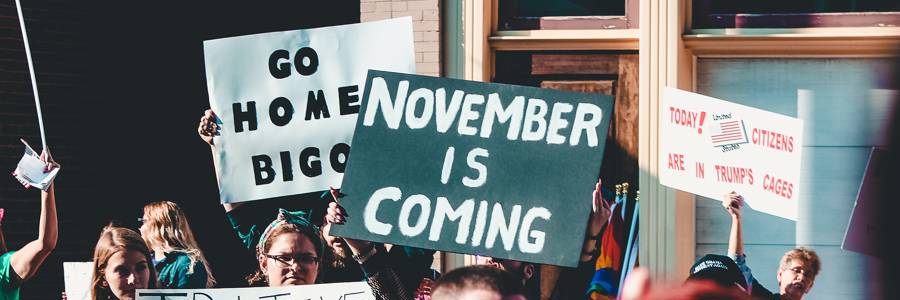María Corina Machado’s Nobel Peace Prize captures the spirit of our age
Posted Monday, 13 Oct 2025 by Marianne Dahl

This year’s Nobel Peace Prize is a reminder that the future of democracy rests on those who dare to protest without violence.
María Corina Machado has been awarded the Nobel Peace Prize – a choice that both captures the spirit of our age and underscores one of its defining challenges: the ongoing dismantling of democracies across the globe. The prize honours Machado’s tireless struggle for democratic rights in Venezuela, at a moment of profound political darkness for her country politically.
Back in the 1990s, Venezuela seemed to be a relatively stable democracy. Since then, however, the country has lurched dramatically towards authoritarianism. Under Hugo Chávez – and more recently Nicolás Maduro – the regime has concentrated power by tightening its control over the country’s courts, electoral authorities, and security forces.
Venezuela’s trajectory reflects a broader global pattern: the resurgence of autocratic governance increasingly led by democratically elected leaders. The politicization of judicial systems, the undermining of institutional independence and prosecutions of political opponents have characterized developments in a number of countries, including Hungary and, increasingly, the United States.
In Venezuela, these developments have led not only to the dismantling of democracy, but also the establishment of a personalist form of government. Power is not exercised through formal institutions, but through bonds of loyalty to Maduro and his inner circle. Research shows that personalist regimes are particularly dysfunctional. They perform worse than other types of government across a range of indicators: they have weaker economic growth; provide the population with poorer public services; are more oppressive; and have a higher risk of armed conflict.
Venezuela is no exception. Although poverty was almost halved between 2002 and 2012, an abrupt reversal has occurred since that period. By 2019, after years of economic collapse and governance failure, 96 percent of Venezuelans were living in poverty – with 71 percent in extreme poverty.
Ordinary Venezuelans have many valid reasons for protesting. And they have done so.
The regime’s response has been brutal oppression. The use of torture, imprisonment and arbitrary violence against demonstrators has become central to its efforts to maintain control.
In the midst of these developments, María Corina Machado has become a unifying figure for the opposition. After winning the opposition’s primary elections with an overwhelming 93-percent share of the vote in 2023, she was blocked from running for president – a move that illustrates the regime’s desire to eliminate any real political challenge. Despite significant persecution, she led non-violent protests against electoral fraud.
Civil resistance has long been central to Venezuelans’ struggle for democracy. Student movements, trade unions and human rights groups have mobilized hundreds of thousands of people in waves of protests – from the La Salida campaign of 2014 to the nationwide demonstrations of 2017 and 2024. The forms of resistance have varied, from large-scale demonstrations and hunger strikes, to local protests and cacerolazos (noisy protests involving the banging of pots and pans), but the goal has remained constant: the reinstatement of democracy.
A broad body of research – to which researchers at both PRIO and the University of Oslo have also contributed – shows that this kind of non-violent mobilization has high potential for success. When large numbers of citizens from diverse groups participate, the probability of a democratic transition is significantly greater. In particular, campaigns with expressly democratic goals, which combine non-violent strategies with broad social mobilization and the support of civil society organizations and trade unions, are most likely to succeed and to foster lasting democratic change.
Unfortunately, more recent studies show that such movements are less likely to succeed today than previously. The breakthroughs following the Velvet Revolution of 1989, Portugal’s Carnation Revolution, and the flower and tulip revolutions of the 2000s are now well in the past. The hopes ignited by the Arab Spring have largely faded, extinguished by authoritarian resurgence and renewed repression. We still do not fully know why such mass movements have become less successful. Researchers point to several possible explanations, including the profound impact of social media on the dynamics of resistance campaigns. Social media platforms facilitate rapid mobilization but simultaneously undermine the close organizational bonds that may be necessary for maintaining pressure over time. In addition, authoritarian regimes have become more efficient at monitoring, polarizing and splitting resistance movements from within.
Machado is by no means an uncontroversial figure. But that, too, is unsurprising. Few leaders of democratic movements escape controversy. Also former Nobel laureate Martin Luther King Jr. faced criticism, including from within his own ranks. The hope, however, is that this year’s Peace Prize will help further unify Venezuela’s opposition.
- Marianne Dahl is Research Director at PRIO
- This text was first published in Norwegian as an op ed in Aftenposten 12 October 2025
- Translation from Norwegian: Fidotext










